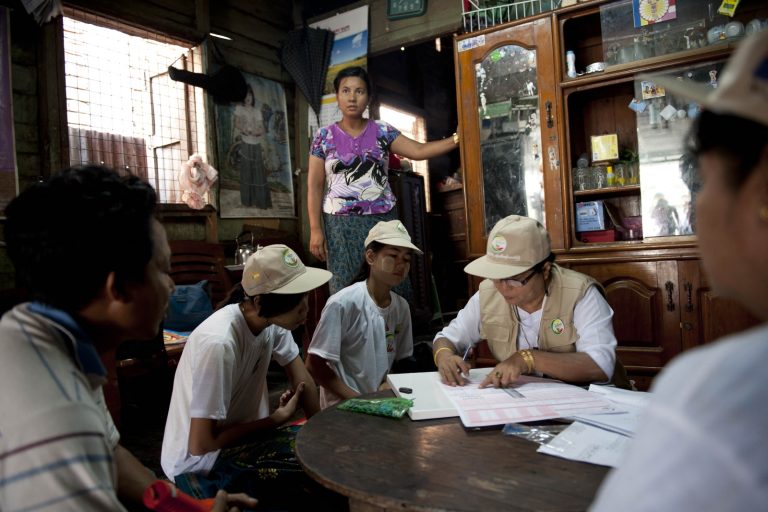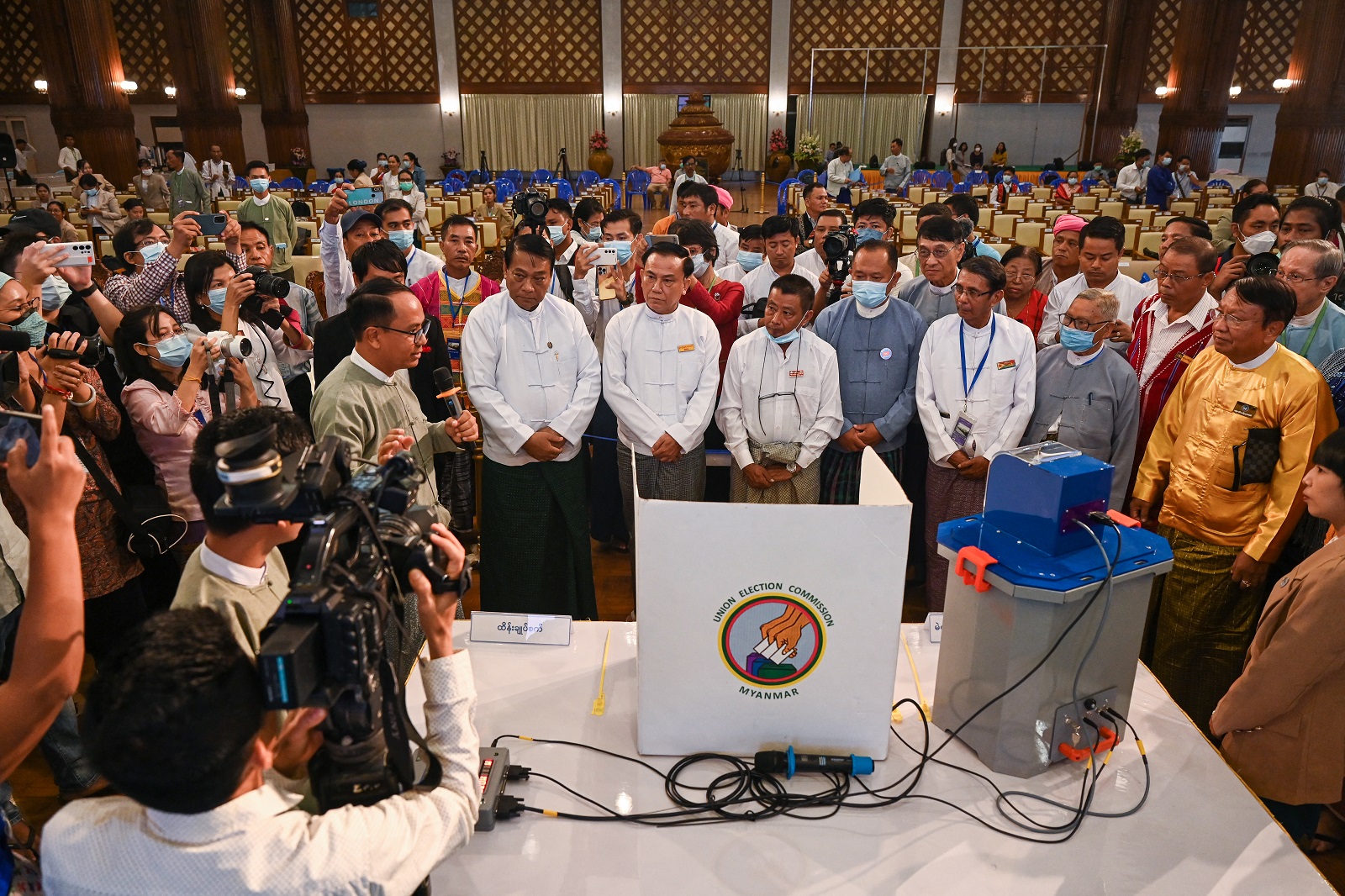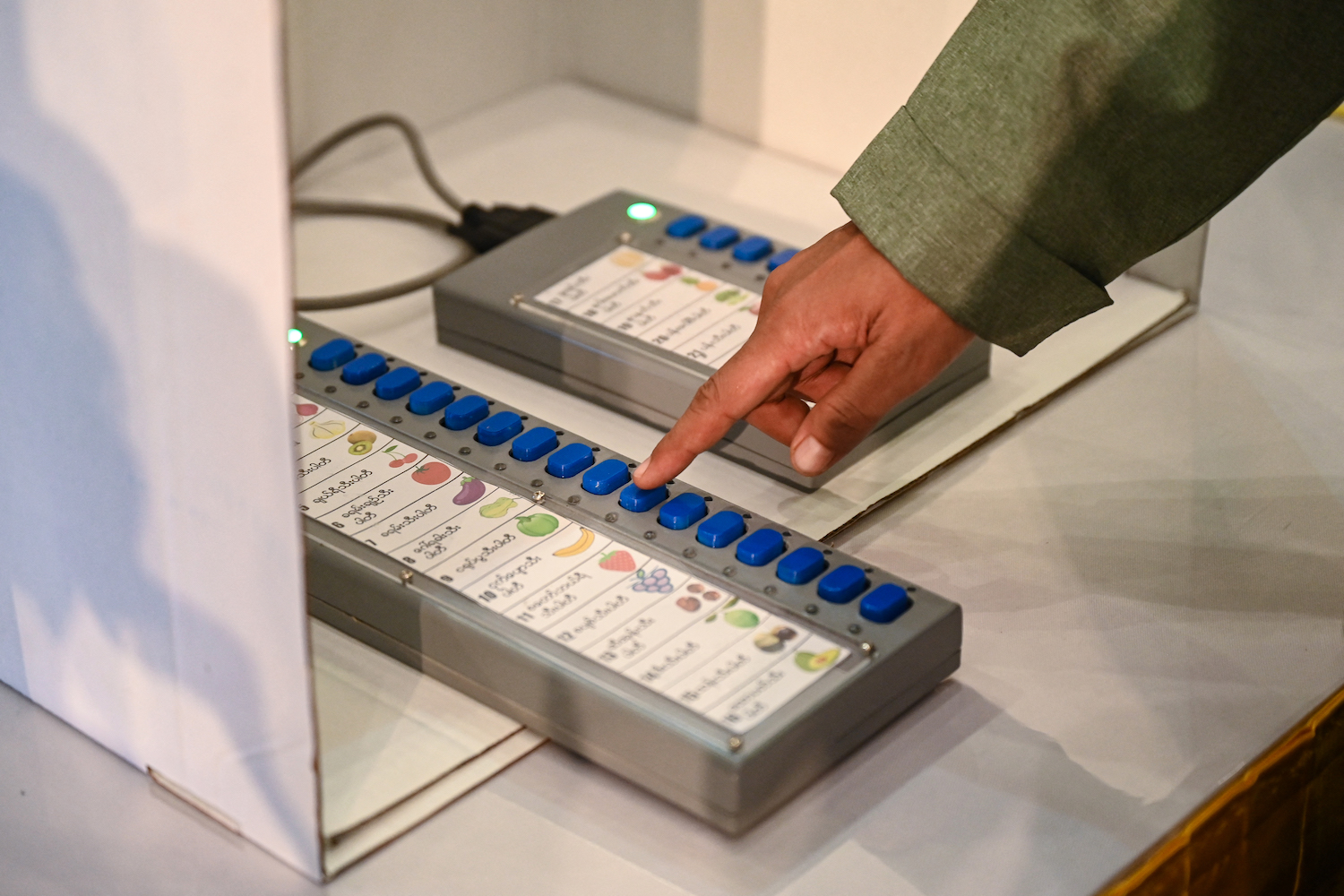EDITORIAL
The regime’s planned population count threatens to boost its powers of surveillance and leave dissidents with few places to hide.
Myanmar’s military regime can rightly be described in all sorts of negative ways. Authoritarian? Certainly. Brutal? Very. Illegitimate? Correct again. But totalitarian? Not really. Or at least – not yet.
During its decades in power, the military has ruled through fear and co-optation. But unlike in a true Orwellian police state, its tools of control are blunt and unsophisticated, and are used in a largely ad hoc way. Despite some technological upgrades in recent years, the military still relies heavily on paid informants to hunt down dissidents, and on torture to extract the “evidence” to prosecute them.
The voter list for the 2015 election, during Myanmar’s failed democratic transition, exposed how little the country’s militarised state institutions really knew about the population. Rampant errors in that list, including the inclusion of many dead people, led some to allege fraud on the part of an election commission that was hand-picked by the military. However, there was a far simpler explanation: the list was based on population records that were often inaccurate or out of date.
For the same reason, the voter list for the 2020 election also contained plenty of mostly minor mistakes. In a spurious attempt to justify its coup, the military spun these mistakes as “evidence” that electoral officials appointed by its political rival, the National League for Democracy, had rigged the party’s landslide re-election victory. However, the generals would have known that Myanmar has never had a reliable, centralised register of citizens.
This lack of accurate population data provides one of the few respites for activists who face years of prison or death for dissenting in the open. With enough care and luck, they can operate in the shadows – evading random household checks, assuming other identities, or bribing poorly-paid soldiers to look the other way.
The embattled junta is desperate to make up for this weakness, and recent steps in this direction are cause for alarm.
The United Nations Population Fund, which assisted the last national census in 2014, told Frontier in a recent feature story that it would not be helping the regime conduct another population count next year. This contradicted state media reports that the agency’s country chief had discussed UN “support” and even the “conditions of cooperation” for a census with the junta, although the regime’s propaganda is known to exaggerate the international backing it receives.
Nonetheless, the junta is pushing ahead with census preparations, which include a two-week trial count in 20 townships early next month. It is also rolling out a parallel “e-ID scheme”, which aims to harvest people’s biometric data for a centralised, digital register of all residents of Myanmar. In the recent feature story, a student in Ayeyarwady Region told Frontier that immigration officials had visited his university late last month, scanning students’ eyes and fingerprints and recording their blood types.
This student is one of about 700,000 people whose biometric data has been recorded so far, state media claims. This suggests the process is separate from the census, which hasn’t even entered the trial stage, but state media and junta officials have repeatedly conflated the two schemes. In turn, they have presented the census as a precursor to an election, because it would help in preparing an accurate voter list.
The junta’s planned election, often described as its political exit strategy, has been vaguely forecasted for 2025. If it ever happens, it will take place without the now-banned NLD or any other meaningful opposition, and amid a continued crackdown on independent media and free expression. But while the junta is unconcerned with these basic requirements for a free and fair vote, it publicly obsesses over the voter list.
It’s easy to see why, when voter list errors in 2020 were the pretext for the coup, and when improving the list overlaps so neatly with the regime’s desire to monitor the population. However, the role of the census in this exercise is ambiguous. Following international standards, Myanmar’s census law requires that personal data be kept confidential and “not be used for any other administrative purposes”. Throw biometric data into the mix, and it’s clear this “census” is chiefly about surveillance, not collecting demographic data to aid governance and development programmes.
This fact isn’t lost on resistance groups, several of whom told Frontier they would obstruct or arrest census-takers if they entered their territory. Some groups may opt for more violent measures, given that the assassination of low-ranking junta appointees is already routine. In this climate, few people will want to volunteer as enumerators, meaning the junta will likely threaten and intimidate people into taking part. The stage is therefore set for a bloodbath, precipitated by the junta’s own thirst for control.
A lack of overseas support may keep the regime thirsty. The 2014 census cost US$74 million, of which European and Australian donors paid about 80 percent. It was also aided by foreign experts and software that won’t be available this time.
However, the junta’s Immigration and Population Minister U Myint Kyaing visited India in July to discuss cooperation on developing Myanmar’s e-ID scheme. He sought similar help from China in a trip this month to Beijing, where he also briefed officials on the regime’s census plan – underlining the link between the two schemes.
But though China and India have offered crucial support to the junta, they have generally done so tentatively. Despite the regular meetings, it’s unclear how far they are willing to back the regime’s pet projects.
Still, any increase in the junta’s capacity to identify and locate people will deepen its oppression. The generals may have seized Myanmar’s state institutions in February 2021, but these institutions have been enfeebled by decades of military rule. Ironically, this poses one of the main obstacles to the junta consolidating power. Therefore, even a shambolic census with limited foreign assistance will bring the totalitarian nightmare one step closer.







